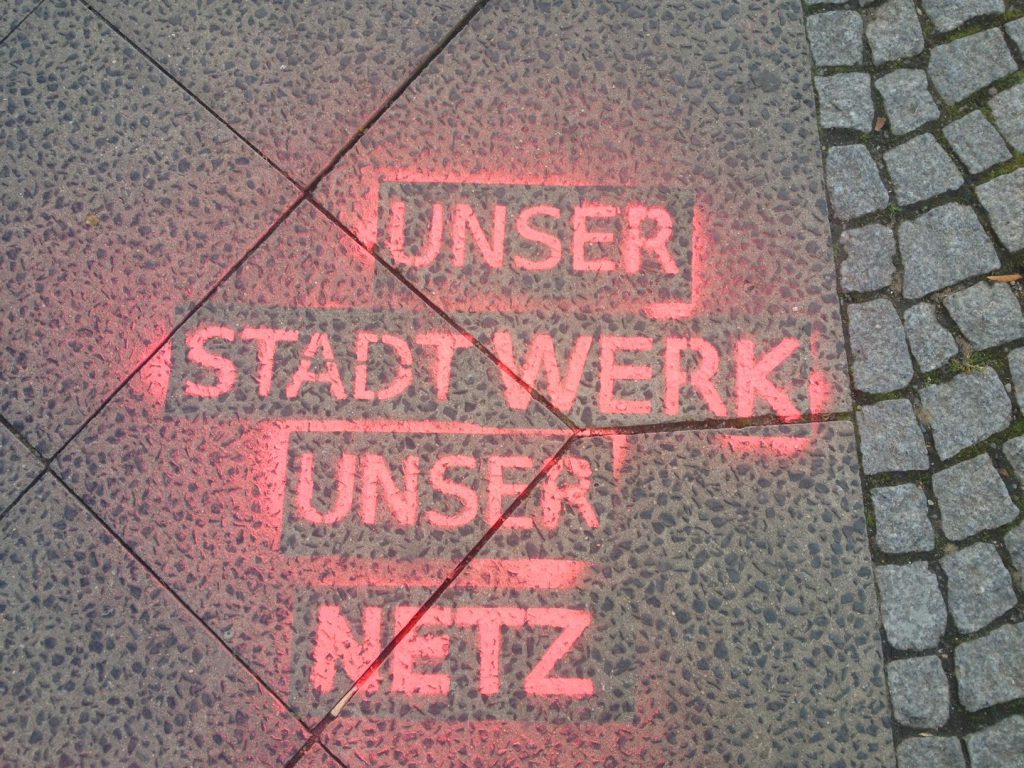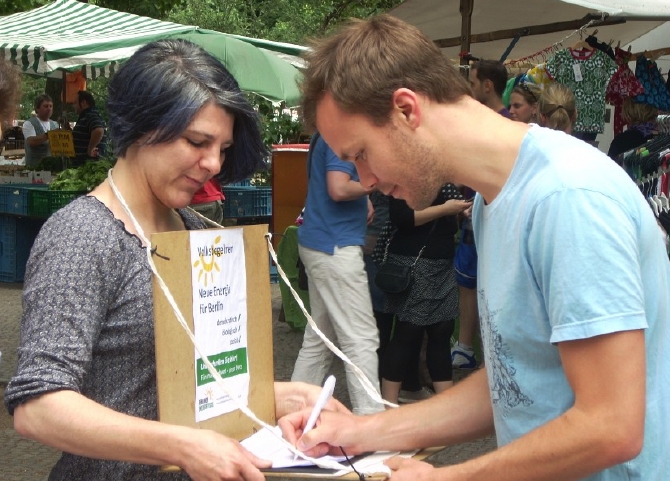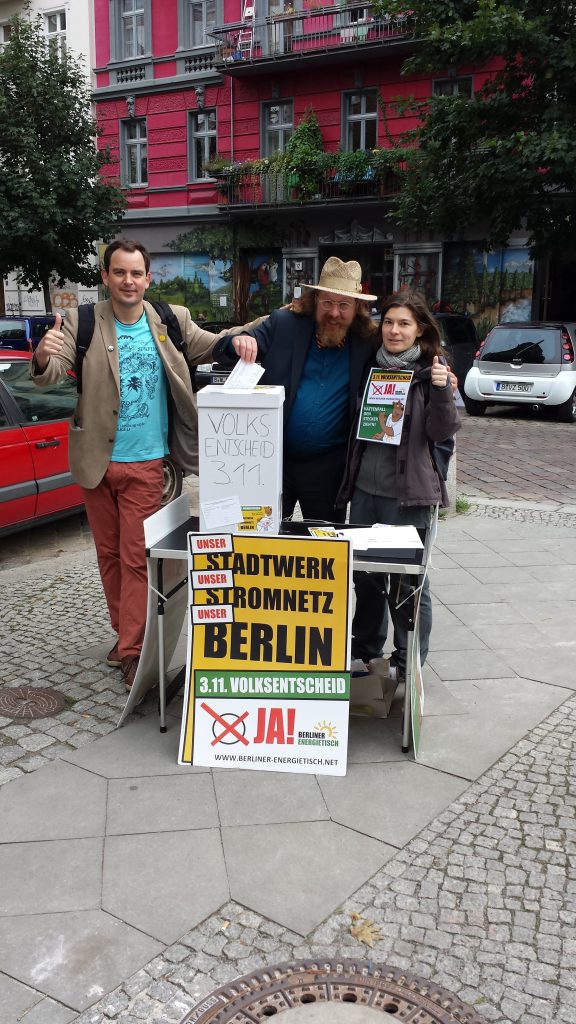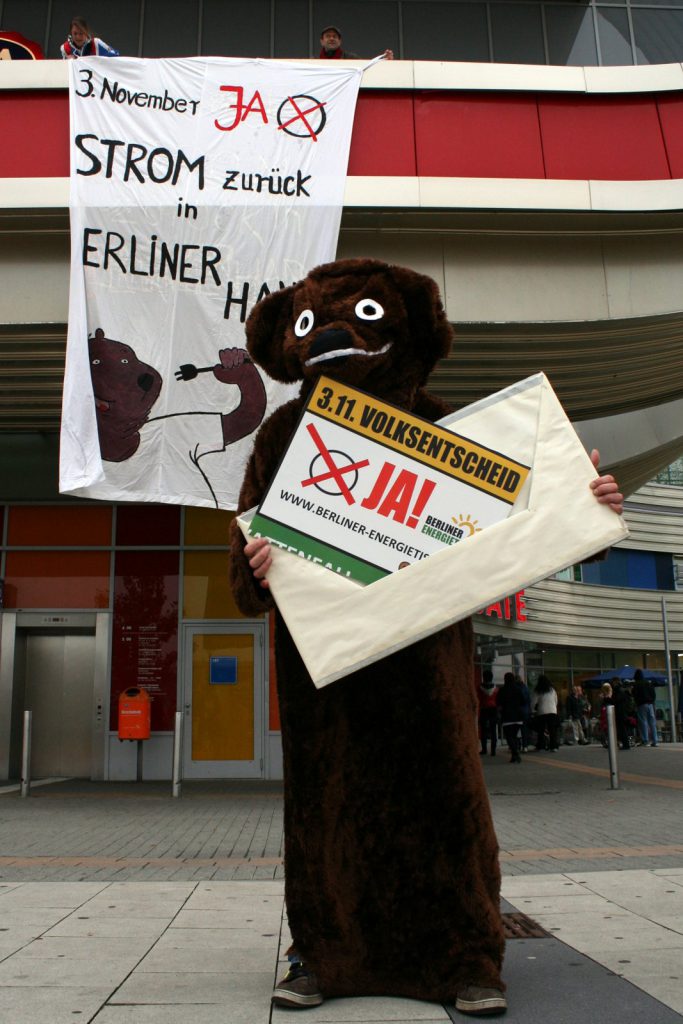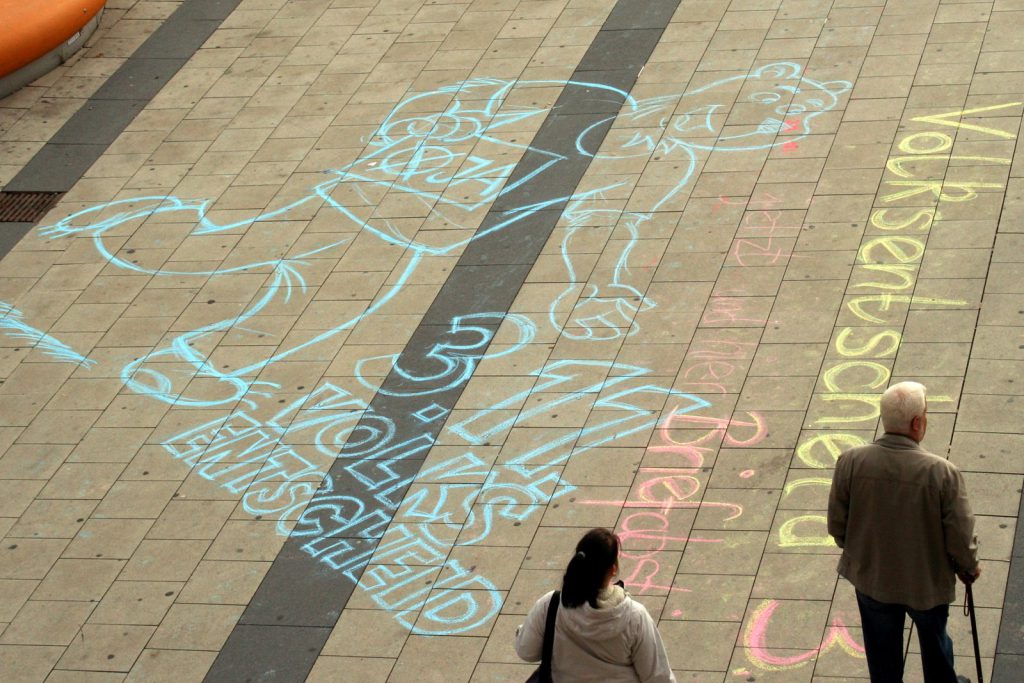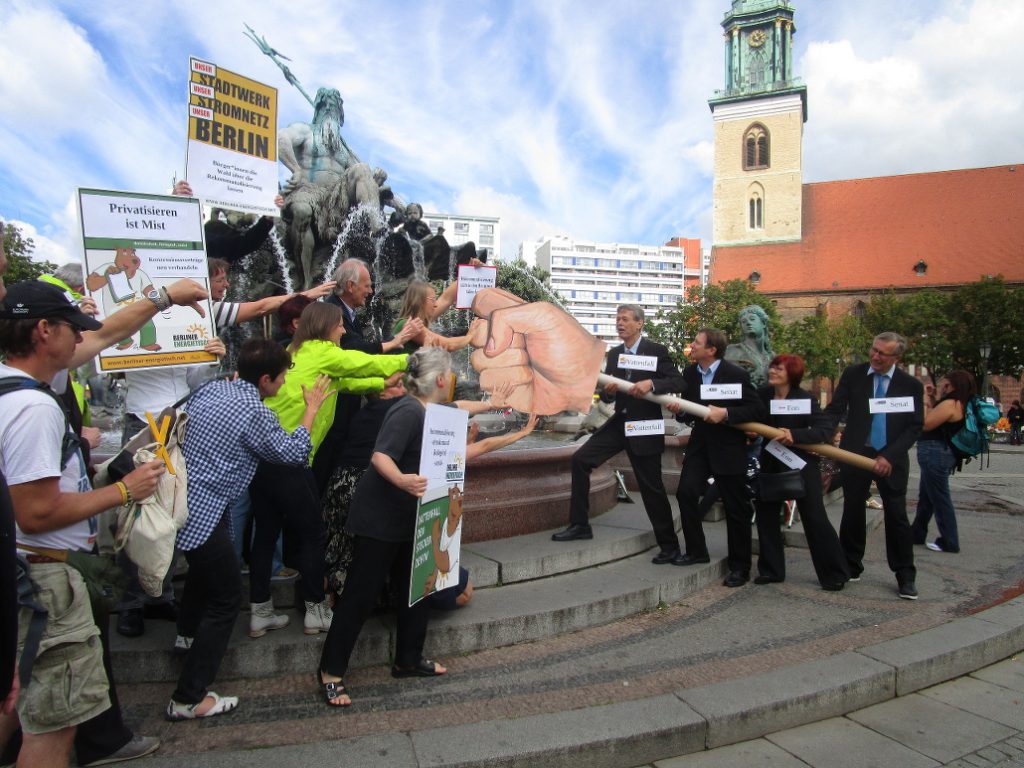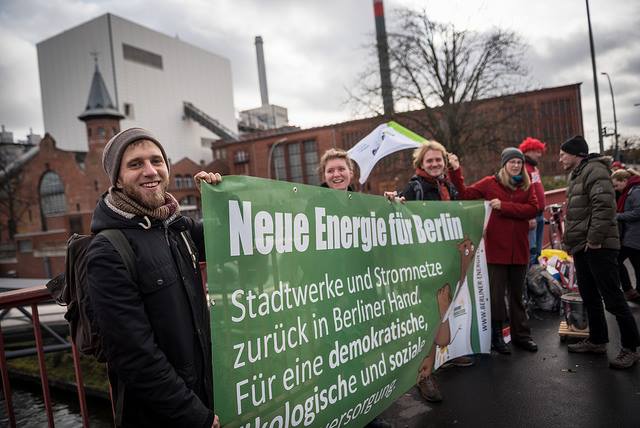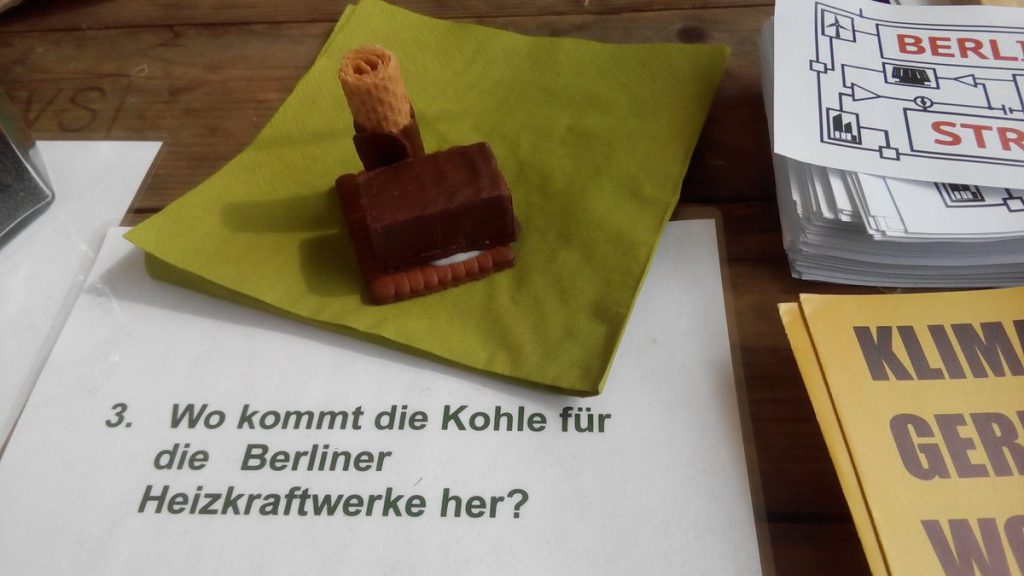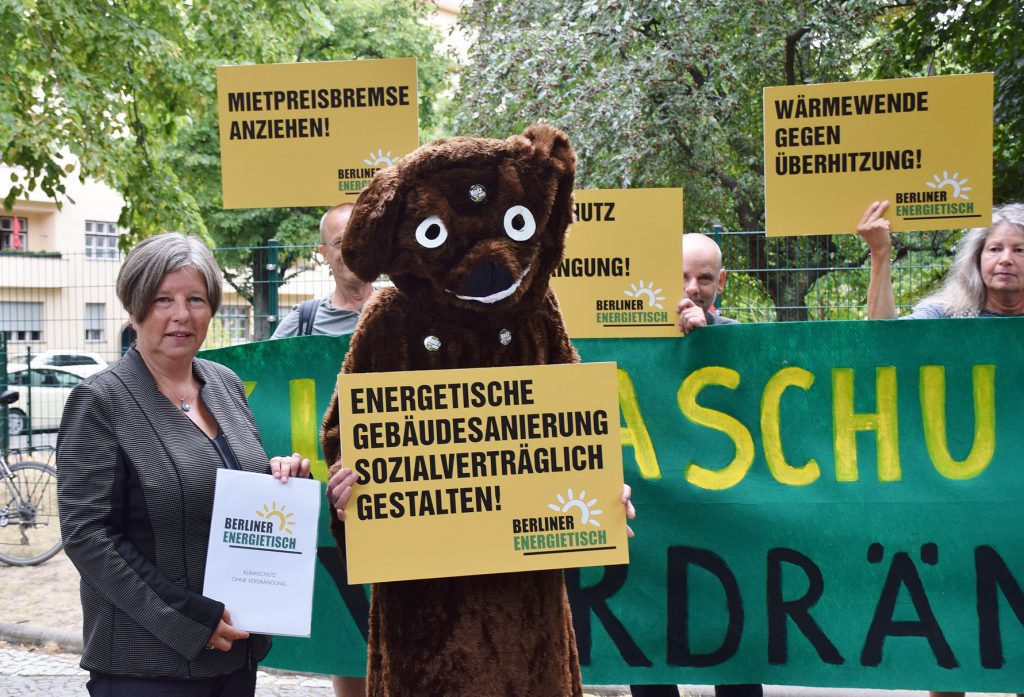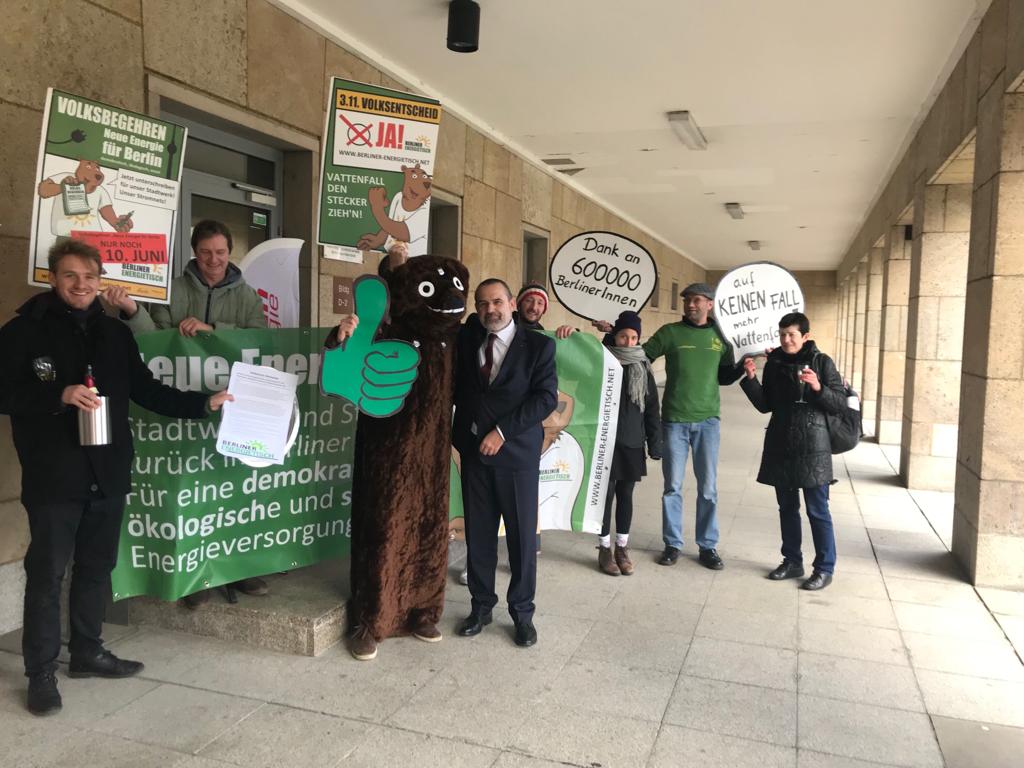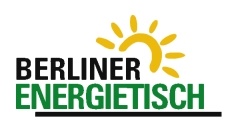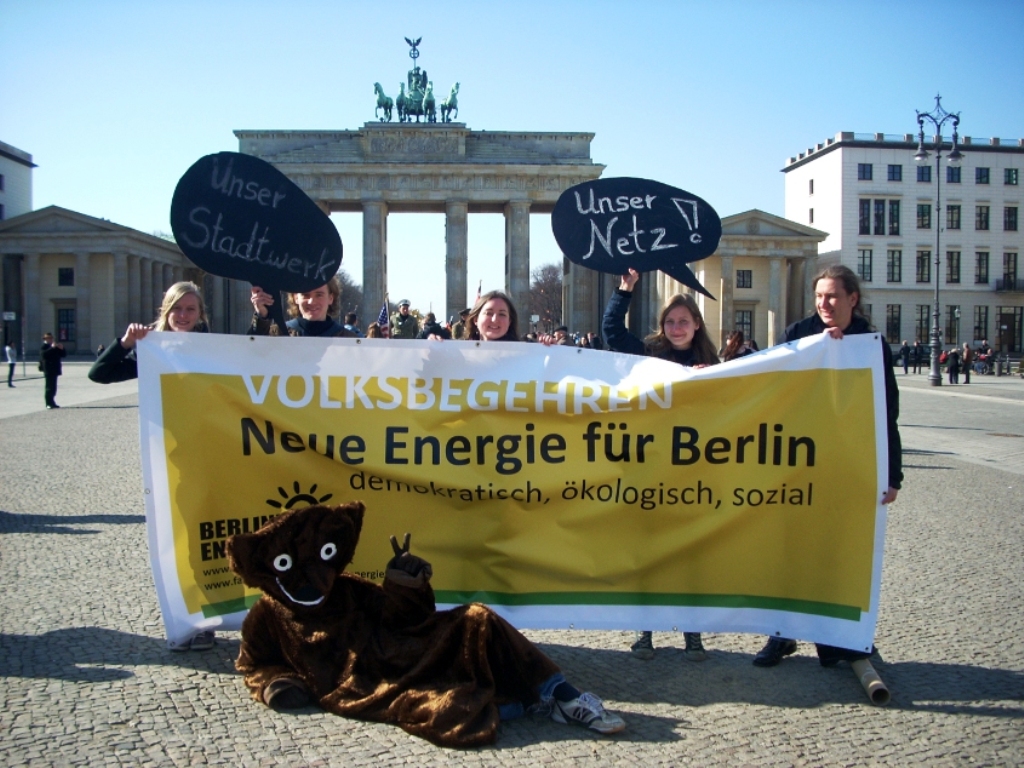
The Berliner Energietisch, roughly translated as Berlin Energy Roundtable, was founded in 2011 and is an alliance of around 50 local civil society groups. We’re fighting for a democratic, ecological and socially just energy supply in the German federal state of Berlin with its 3.8 million of inhabitants.
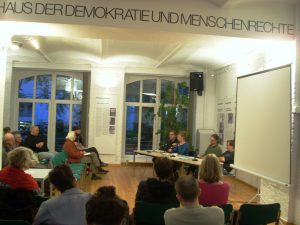
The Berlin Energy Roundtable consists of the roundtable assembly, a steering board and several working groups. We’re supported in daily management and administration as well as public relations by the non-profit association BürgerBegehren Klimaschutz.
The roundtable meets on every second second Wednesday of the month, when all decisions are made. We’re made up of supporting local civil society groups as well as individuals. The supporting civil society groups range from large NGOs to small initiatives from across the social and environmental movements to activist networks. Church groups, social welfare and tenant counseling organisations as well as cultural associations can be found in the list, as well as the „usual suspects“ from the environmentalist and social justice movements.
We exclusively work as volunteers and are financed through donations only.
Contact
Berliner Energietisch, c/o
NaturFreunde Berlin
Uwe Hiksch
Paretzer Str. 7
10713 Berlin
hiksch@naturfreunde.de
info (at) berliner-energietisch.net
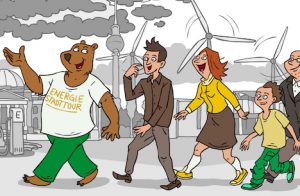
Do you want to know what’s going on in energy and climate politics? Are you curious to learn more about the energy transition in Berlin? Join our monthly guided tours to discover how power and energy relate in the heart of Berlin. We also offer guided tours in English on request.
The story of the Berlin Energy Roundtable
The Berlin municipal utility Berliner Stadtwerke today offers 100 percent renewable electricity and Berlin was the first German federal state to endorse a coal phase-out by 2030. The reason behind these changes it a referendum led by the Energy Roundtable that put the necessary pressure on policy-makers. Even a parliamentary foul of Berlin’s Christian Democratic Party CDU didn’t stop this.
What does it look like when a multinational energy corporation is panicking? In 2013, you could see it everywhere in Berlin. The big energy incumbant Vattenfall had poster advertising everywhere, saying „35,000 kilometers of electricity grid: How nice that you don’t have to care about it.“ But by then it was already too late. People were already caring about it.
Berliners wanted to know where the electricity in their outlets was coming from and why a profit-driven company can decide about shutting off the heat to those who are short of money. Energy became a common topic of discussion in the city of Berlin.
In 2012 before taxes, Vattenfall earned 165.5 million Euros from operating the Berlin electricity grid.
The Berlin Energy Roundtable had set it on the agenda. Activists wanted to take an opportunity that only appears every 20 years. At the end of 2014, the concession for operating the electricity grid of Berlin would come to an end. Like many municipalities in the 1990es, the German capital had given it away to a corporation, namely Vattenfall.
This big multinational energy group made hundreds of millions of Euro every year thanks to the grid fees. And at the same time as a grid operator, Vattenfall was blocking the energy transition. The electricity grid had to be prepared for distributed renewable electricity generation with many solar panels and wind turbines instead of a few coal-fired power plants. But as Vattenfall itself run such coal-fired power plants, the group was not really interested in doing so.
100% renewable for Berlin
Besides reclaiming the grid, the Berlin Energy Roundtable also campaigned to establish a publicly owned municipal utility. This Berlin Stadtwerk should advance local and regional renewable electricity production. In addition, the model suggested socially just electricity tariffs, depending on households‘ income. People who were behind on bills should get a free energy consult and a basic supply of energy. Citizens would be involved directly in democratic decision-making of their public utility.

„The municipal utility contributes to changing the base of Berlin’s energy supply in the long term to one based on 100% locally used renewable energies.“ This is how the beginning of the draft law „New energy for Berlin“ opens. The referendum process based on this law was started by the Berlin Energy Roundtable on 18 January 2012.
In order to get the draft law on the agenda of the Berlin government, 20,000 citizens needed to support it with their signature. After four months, the Berlin Energy Roundtable had collected them. The grand coalition of Social Democrats and Christian Democrats governing Berlin at that time then offered a compromise, namely to launch a new municipal utility, but with limited ecological objectives only. It disregarded the Roundtable’s call for democratic control and for a socially just energy supply.
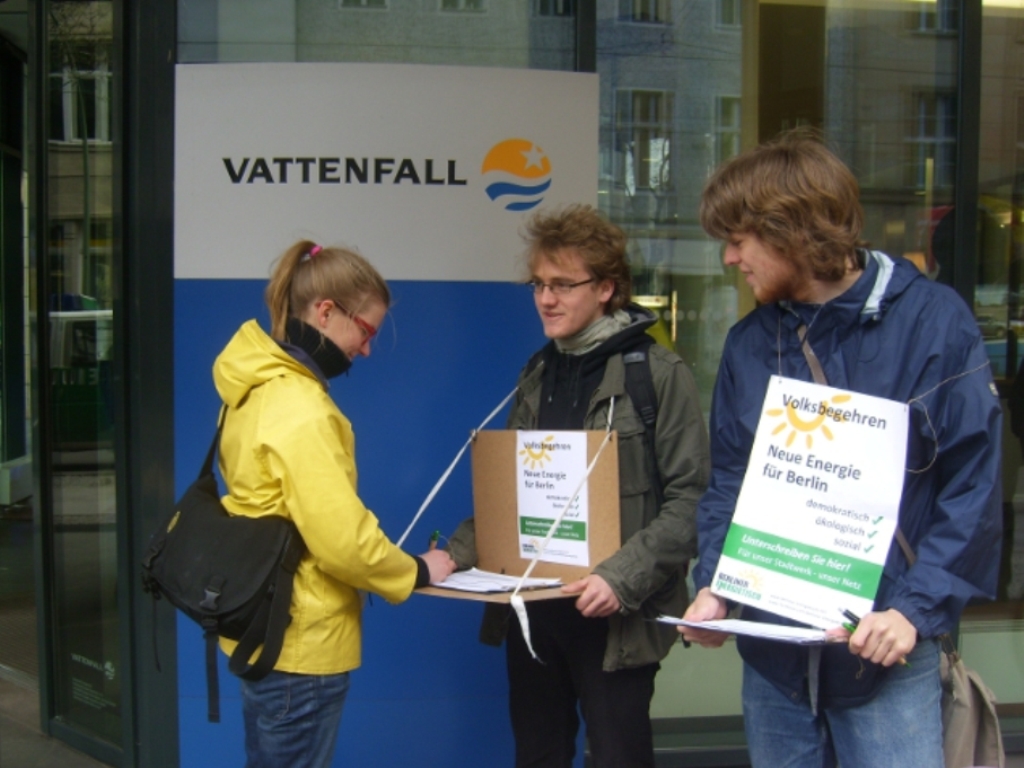
„There’s even more to it!“
The Berlin Energy Roundtable meanwhile had grown to a platform supported by 50 civil society organisations. The Roundtable decided to reject the government’s offer and to launch the second step for a referendum. In order to convene an official vote of all Berlin citizens about the draft law, 173,000 signatures had to be collected.
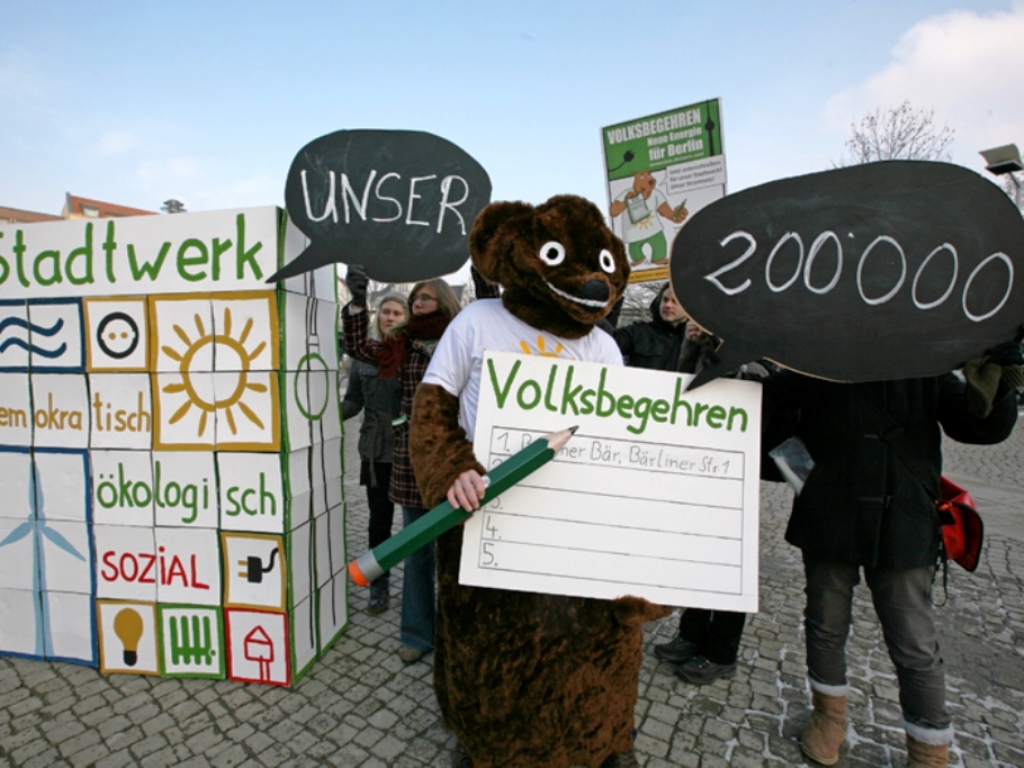
In the end, 271,495 Berliners signed to having a referendum on the draft law. The governing grand coalition however committed a parliamentary foul. In a referendum in Berlin, at least 25% of all citizens have to vote yes for a draft law, otherwise it is rejected.
Initially, the referendum was planned for 22 September 2013, on the same day of the federal general election. Berlin’s Christian Democrats however scheduled the referendum for November 2013 in order to reduce turn-out.
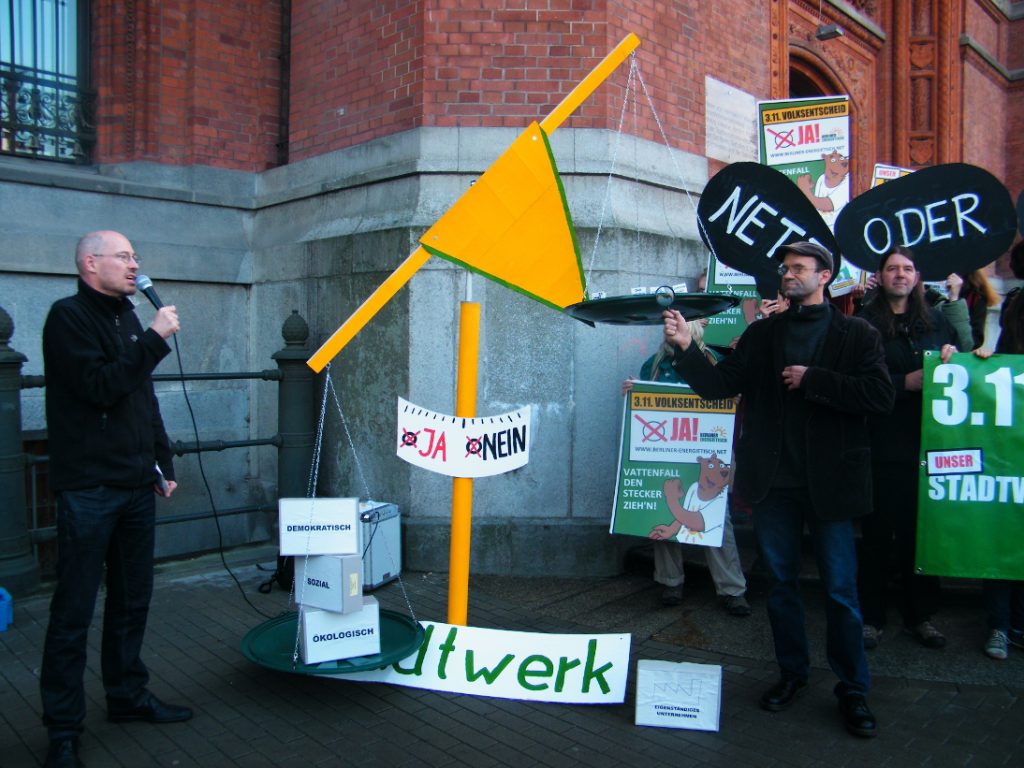
In addition, the governing grand coalition announced to launch a public utility just a few days before the decisive referendum vote. This utility however would not have been able to buy any electricity from the market and could use existing capacities only. It would have been able to barely supply a few hundred of households. This was a fake utility that aimed at taking the wind out of the Roundtable’s sails.
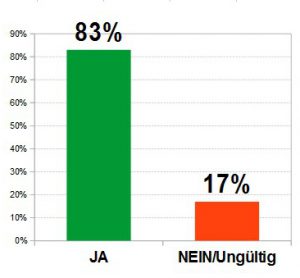
The 25% quorum however was just barely missed. On 3 November, 622,000 votes would have been sufficient but the result was 599,565 votes. So the referendum failed while a huge majority of 83% voted in favour of the draft law.
Lucky losers
Despite the lost referendum, the Berlin Energy Roundtable achieved a lot. The Roundtable was involved in a parliamentary enquiry that lead to the removal of the artificial limitations to the new public utility’s activities. The municipal utility now can buy and sell renewable electricity. Financially speaking, it also is now better equipped.
In cooperation with the public housing companies, the municipal utility set up a platform to provide tenants with access to renewable electricity produced on the premises. More and more solar power plants pop up on the rooftops of multi-storey dwellings owned by cooperatives, allowing tenants to buy cheap solar power. On top of that, Berlin is the first German federal state that has decided a coal phase-out by 2030 in a binding law.
„Key elements of our demands are embodied in the coalition agreement of the new government run by Social Democrats, Greens and the Left. As Berlin Energy Roundtable, we’re still together and still strong. Thanks to the referendum we’re at a position of discussing on par with the local government.“
Jens-Martin Rode, campaigner and co-founder of the Berlin Energy Roundtable
More resources
„Klimawende von unten“ („Bottom-up climate transition“): For more best practice and guiding principles on how to reclaim climate politics through direct democracy on the local level, check www.klimawende.org (German only).
You can also read the article on the Roundtable published by the international network energydemocracy.net
In an in-depth policy brief that’s very worth reading, Dario Quadri Ilkhani and Eckart Woertz compare the remunicipalisation processes in Berlin, Hamburg and Barcelona and analyse them in the broader context of energy markets and participation: Remunicipalisation of Local Energy Provision: The Role of Cities and Bottom-up Initiatives. The policy brief is based on an international workshop that Berlin Energy Roundtable joined in March 2019 in Barcelona.
Impressions from almost one decade of action

